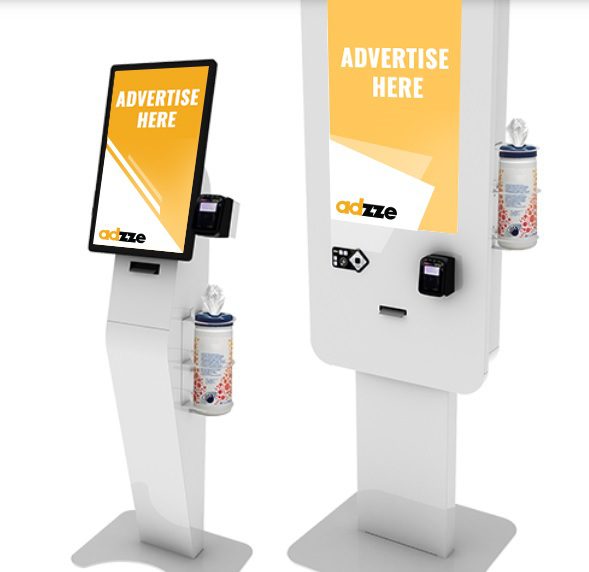In today’s world, hygiene has become a top priority, especially in public spaces like retail environments. The presence of hand sanitizer stands in high-traffic areas is now more important than ever. However, what many businesses overlook is the strategic placement of these stands and how their positioning can significantly impact consumer behavior. By effectively utilizing them, businesses can create an enhanced customer experience, improve brand visibility, and even influence purchasing decisions. Let’s delve into the powerful connection between hand sanitizer stand placement and consumer behavior.
The Role of Hand Sanitizer Stands in Modern Retail Environments
Before diving into the strategic placement, it’s essential to recognize the rising prominence of hand sanitizer stands in retail settings. The global pandemic made hygiene a central focus in stores, airports, restaurants, and other commercial spaces. However, even as health concerns evolve, the visibility and accessibility of hand sanitizer stands continue to play a vital role in maintaining a clean and safe environment for consumers.
They are not only functional—they’re also a branding opportunity. By positioning them strategically, brands can create a positive association between their products or services and health-consciousness, increasing trust among consumers.
Why Placement of Hand Sanitizer Stands Matters
The placement of hand sanitizer stands isn’t just about providing a service; it’s about creating a psychological connection that guides consumer behavior. Placement can influence:
First Impressions
The first impression a customer gets when entering a store or venue can set the tone for their experience. When consumers immediately encounter a well-placed hand sanitizer stand, they feel welcomed and reassured that their health and safety are a priority. A prominent, easy-to-find hand sanitizer stand offers a sense of care and professionalism, which can translate into a more favorable perception of the brand.
Hygiene and Trust
Consumers are more likely to trust a brand that shows they care about hygiene. The location of a hand sanitizer stand can send a subtle but powerful message about a brand’s commitment to cleanliness. For example, placing sanitizer stands in areas where customers are most likely to touch surfaces—such as near entrances, checkout counters, or shared spaces—reinforces the brand’s trustworthiness and enhances the customer experience.
Branding and Customer Engagement
In addition to promoting hygiene, they can be used as a strategic branding tool. By customizing the stands with logos, slogans, or interactive features, brands can not only attract attention but also create memorable experiences. The more visible and engaging the hand sanitizer stand, the higher the chance that consumers will remember and connect with the brand.
Key Locations That Drive Consumer Engagement
To fully leverage the power of hand sanitizer stands, businesses need to consider where they place them. Below are some high-impact locations where the strategic placement of sanitizer stands can have a significant effect on consumer behavior:
1. Store Entrances and Exits: The Welcome Mat of Hygiene
The entrance of a store is the first place where consumers make a judgment about the cleanliness and professionalism of the environment. Placing them at the entry point ensures that customers see it as soon as they step inside, reinforcing the store’s commitment to cleanliness and health. Additionally, strategically positioning a sanitizer stand at the exit encourages consumers to sanitize before they leave, creating an atmosphere where hygiene is always prioritized.
2. High-Traffic Areas: Where Foot Traffic Meets the Product
Placing a hand sanitizer stand in areas with high foot traffic, such as near checkout counters, aisles, or product displays, is a tactic that works for both hygiene and engagement. These high-traffic zones often present an opportunity for brands to influence consumer behavior right at the point of decision-making.
3. Product-Specific Zones: Enhancing Consumer Interaction
An innovative approach involves positioning hand sanitizer stands next to product-specific areas. For instance, in a cosmetics store, a hand sanitizer stand placed near beauty products or makeup displays encourages customers to sanitize before trying samples or testing products. This not only promotes hygiene but also creates a seamless, engaging experience that fosters trust and comfort. By placing them in zones where customers interact with products, the business encourages the association of cleanliness with the product experience itself.
4. Waiting Areas: Turning Idle Time into a Positive Experience
Waiting areas, whether in a store, airport, or even a restaurant, often become a point where customers have idle time on their hands. By placing a hand sanitizer stand in these areas, businesses can make a positive impact on consumer behavior. Not only does this demonstrate a brand’s attention to hygiene, but it also provides customers with something useful to do while they wait. In turn, this can improve customer satisfaction, leading to more positive reviews and repeat visits.
How Hand Sanitizer Stand Placement Drives Purchasing Decisions
The way a hand sanitizer stand is placed within a retail space has direct implications on consumer behavior and purchasing decisions. Here’s how:
1. Comfort and Convenience: If customers feel comfortable and know that their hygiene needs are being taken care of, they’re more likely to stay longer in the store and browse products. In turn, this extended time in-store increases the likelihood of making a purchase.
2. Psychological Association with Cleanliness: Studies have shown that cleanliness has a strong psychological effect on consumers. When a store prioritizes hygiene through visible hand sanitizer stands, it creates a connection between the store’s products and quality. A clean environment suggests that the brand cares about its consumers, which can lead to increased sales.
3. Reduced Perceived Risk: For many consumers, the thought of touching products or surfaces in public spaces comes with a certain level of perceived risk, particularly in the wake of health concerns. By making hand sanitizer readily available, businesses reduce this perceived risk, encouraging customers to interact with products and ultimately make a purchase.








